Red Onion Syrup, a lost remedy, has made a comeback for modern use and can be beneficial to support a variety of health needs. As a child, my grandmother used to make a tomato-based red onion soup with cornbread when we had the flu. Though I don’t recall the exact recipe at this distance, I remember how good I always felt after eating it and how seemingly fast the cold left.
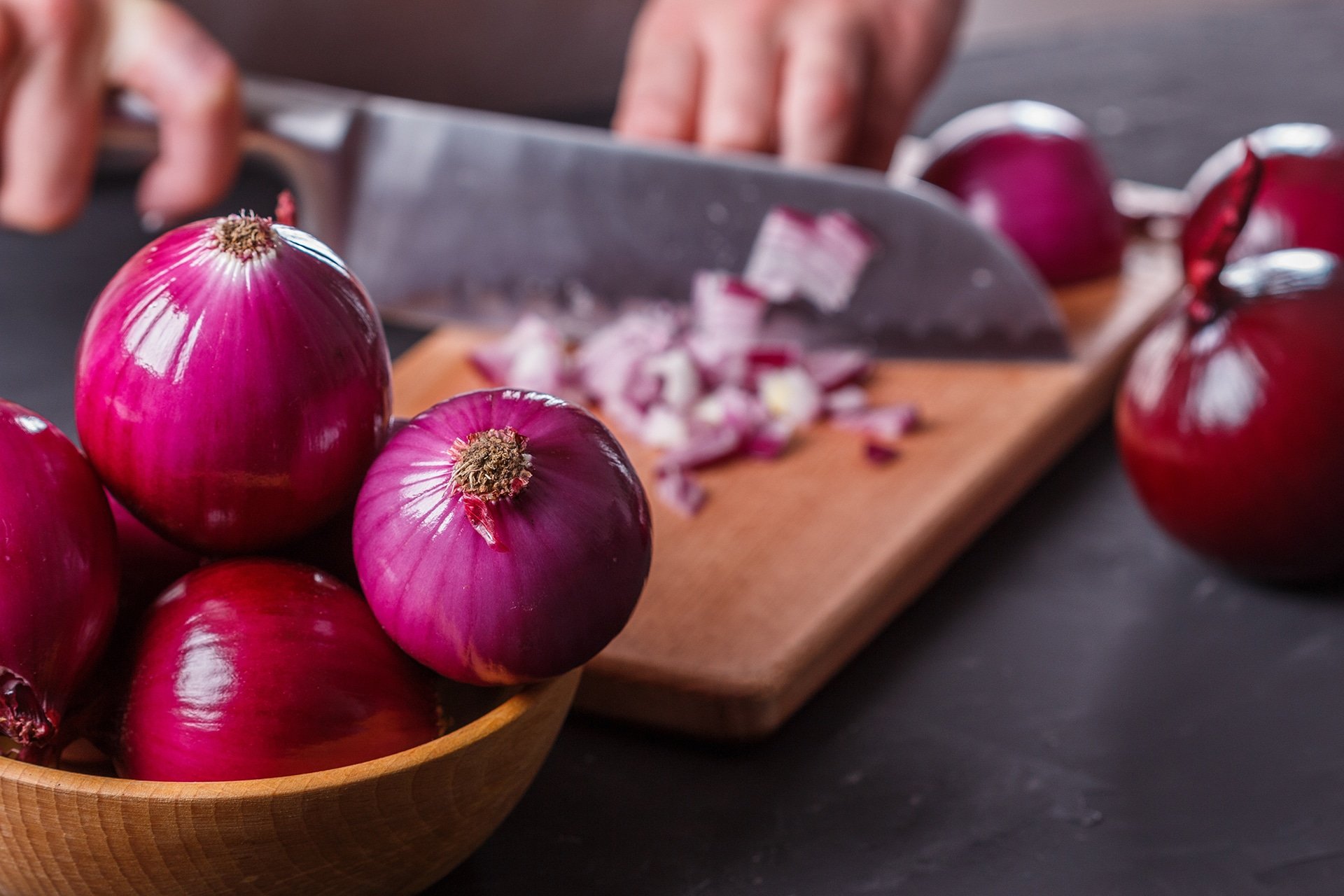
Making onion syrup or honey is an age-old “folk” remedy that has been passed down through the generations and used as a cough syrup and for sore throats. The use of red onion for serious health problems, like kidney stones, was discovered by an African American man from Virginia who was freed because his remedy proved to be very effective. Black North American herbalists garnered much notoriety in publications like the Journal of Medicine by Francis A. Porcher for their effective remedies and extensive plant knowledge.
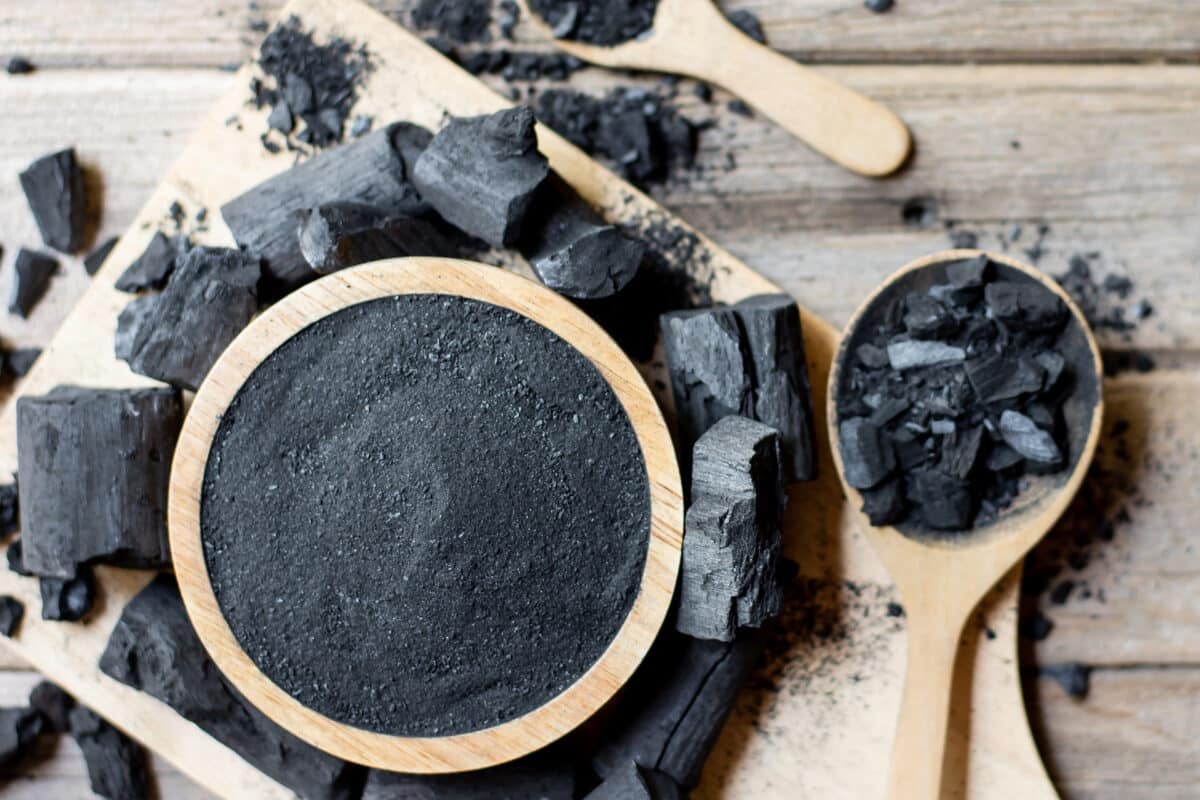
Black North American Herbalists used a variety of herbs and plant substances in combination with red onions to enhance overall efficacy and potency of herbal remedies. Some of these herbs and plant substances included the following…
- Turpentine (made from the pine resin and sap)
- Vinegars
- Pine Tree Bark
- Tree Resin
- Charcoal
- Roasted onion ash1
The key base ingredient of these remedies was always honey. More on that later!
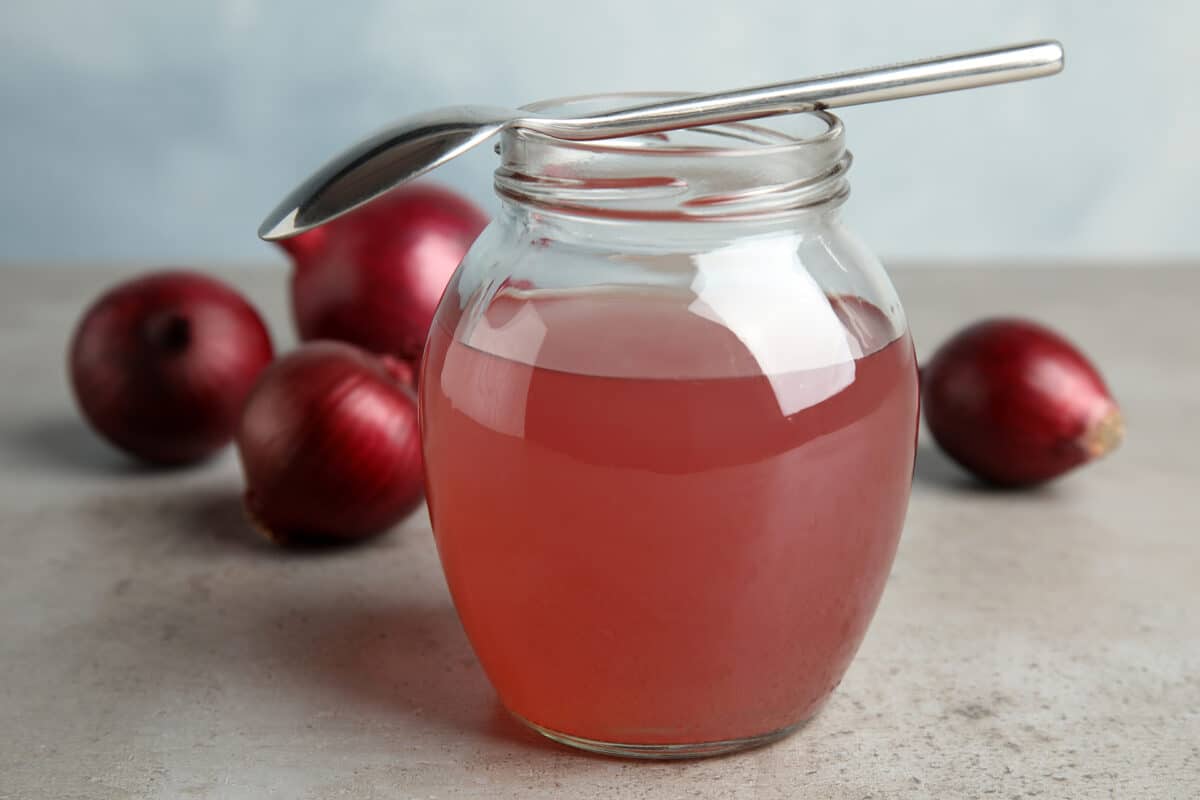
How to Make Red Onion Syrup
Red Onion Syrup is super easy and fun to make. Syrups can be made using a variety of sweeteners and methods. The most popular is sugar and water and making it into a simple syrup. Medicinally, molasses and honey are great sweetener choices since they add extra health benefits and are more shelf stable. In this simple recipe we’ll be using raw unfiltered honey. Let’s go!
Ingredients you’ll need…
- 4 med sized red onions — organic if possible.
- 32 oz of raw unfiltered honey
Supplies you’ll need…
- 32 oz size jar
- A cutting knife
- Cutting board
- Strainer
- Wash your onions and peel the outer onion layer. Discard this layer.
- Cut all 4 onions into ring size slices or dice into cubes. Avoid slicing the onions too thinly. We’re aiming for a medium range thickness.
- Place your sliced onions into a 32 oz size jar, and fill the jar with your raw honey.
- Seal the jar with a lid and label the jar with the date and ingredients.
- Let this jar sit for 2 weeks. During this process, the honey will become less viscous due to the water content from the onions. This is a sign that the onions are being extracted by the honey. Be sure to check for signs of spoilage and odd smell. If mold is present or smells foul, discard and start again. If you find mold growing on your syrup, next time reduce maceration time to 1 week.
- After you’ve let the jar sit for 2 weeks, pour it into a strainer and press with a spoon. Set strained onions aside. See FAQs for use.
- After you’ve strained it, pour the syrup into a jar or bottle, secure it with a lid, add your label (with the name and date of your syrup), and store in a cool dark place. If kept in a cool dark place, an onion syrup can last 6 months to 1 year.
Yield: 18 oz of syrup
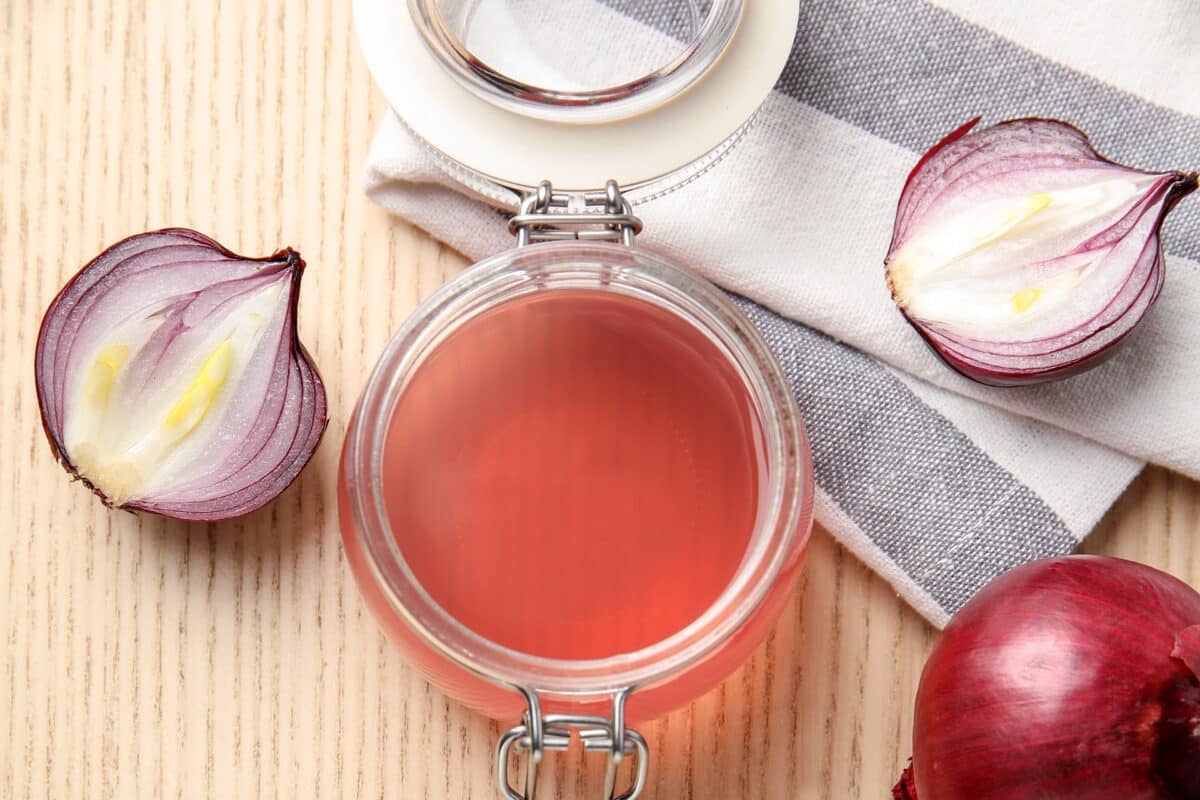
How to Use Your Red Onion Syrup
This honey onion syrup can be taken for many common ailments. Add one teaspoon of the syrup to 1 cup of warm or hot water, and drink this as a tea at the first sign of cold, as a homemade cough syrup, or for an upset stomach as needed. You can also take the syrup directly without adding water. Taking the syrup undiluted is not recommended for people with a sensitive digestion.
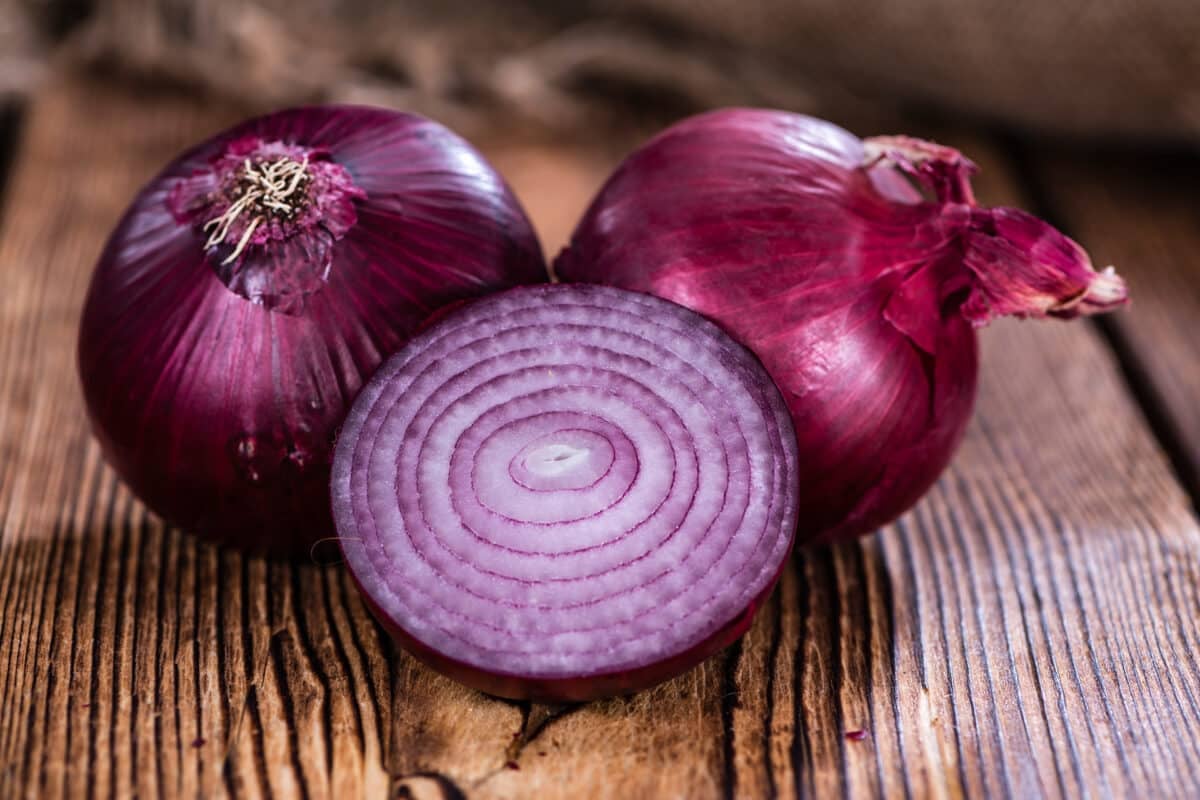
Benefits of Onions (Allium Cepa)
So what’s the big deal about something as pungent and strong smelling as red onions? Let’s find out…
Red onion, also known as the bulb onion or common onion, is a vegetable that is the most widely cultivated species of the genus Allium. The beneficial properties of red onions are numerous, but here are some of my favorite gifts of red onion:
- Red onions contain diallyl sulfides. These sulfur groups help produce cysteine within the body that aid in cancer prevention. The sulfur compounds in red onions also lower LDL cholesterol & triglycerides while boosting HDL levels. Red Onions are rich in antioxidants and phytonutrients.2
- Red onions are a powerhouse of quercetin, a rich flavonoid antioxidant. The antioxidant flavonoids are extremely rich in the outer layers of the onion.
- Red onions are also a fantastic source of chromium, which can help lower blood sugar and enhance cellular insulin.3
- Red onion supports the heart by promoting the thinning of blood to prevent blood clots, which can help reduce the chances of stroke.4 Please note: blood clots and strokes are a serious medical condition that require immediate medical attention. Please see a doctor if you or someone you know is experiencing these symptoms.
- Red onion can support respiratory health and help ease mild coughs.
- Red onion can help address inflammation in the urinary tract.
- Red onion can ease ear ache as a soothing, antibacterial herb.
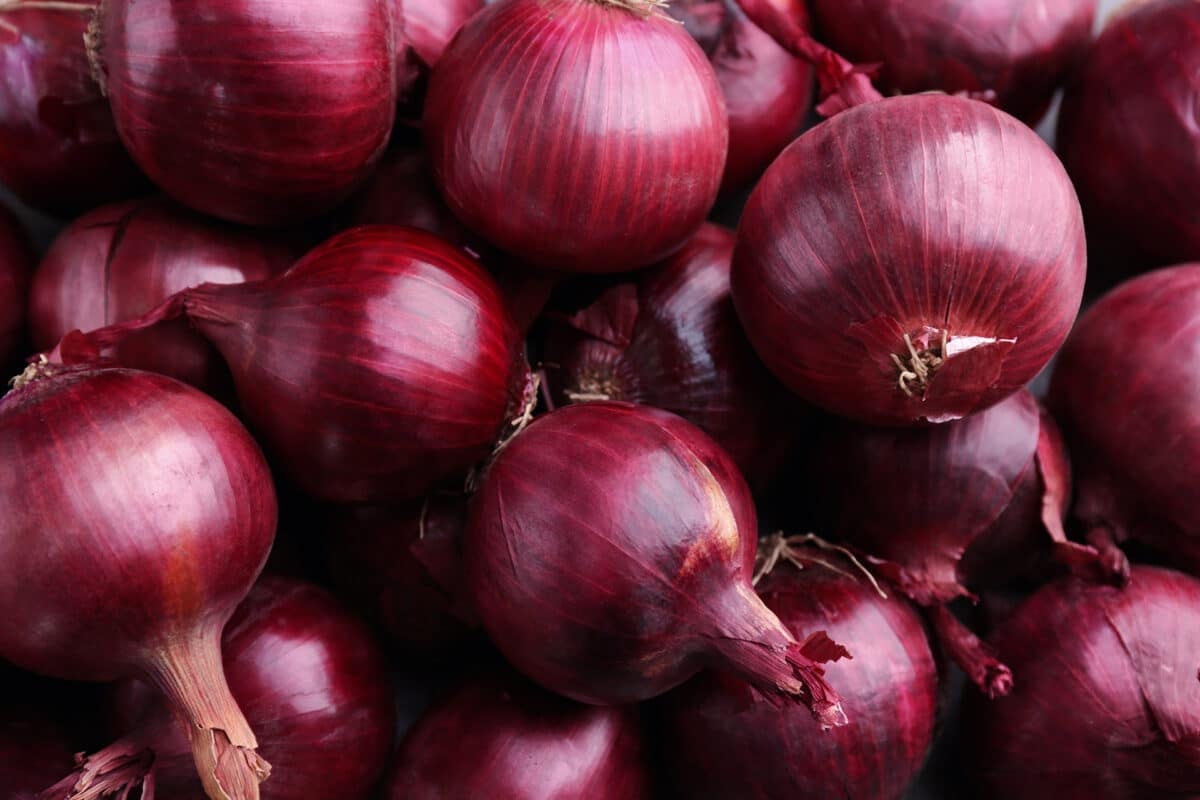
Here are some frequently asked questions about making red onion syrup…
Can I make a red onion tea then add sweetener?
Yes! After you decoct the red onion strain and simmer down the decoction to the desired yield amount and add equal parts of sweetener.
Could I add alcohol to preserve my onion syrup?
Yes, I recommend a trace amount (5-10% of total volume) as you don’t want it to ferment.
Can this onion syrup be added to other herbal preparations?
Yes, this onion honey syrup pairs great with vinegars, oxymels, switchels, and shrubs. It adds sweetness to bitter tinctures.
Can I cook with this onion syrup?
Absolutely! Try adding your onion syrup to hearty greens like kale, collards, broccoli leaves.
How long will onion syrup last?
If kept in a cool dark place, an onion syrup can last 3-6 months. Make sure to smell your syrup and check it for mold and other signs of spoiling as time progresses.
What body system can this onion syrup support?
This onion syrup can support respiratory issues by thinning mucus, helping to expel excess mucus and stave off colds. This syrup supports digestion by helping to expel gas and relieve stomach discomfort.
What can I use the left-over onions for?
Great question! The leftover onions can be enjoyed as side with chicken, pork or steak. Or added to your favorite sandwich.
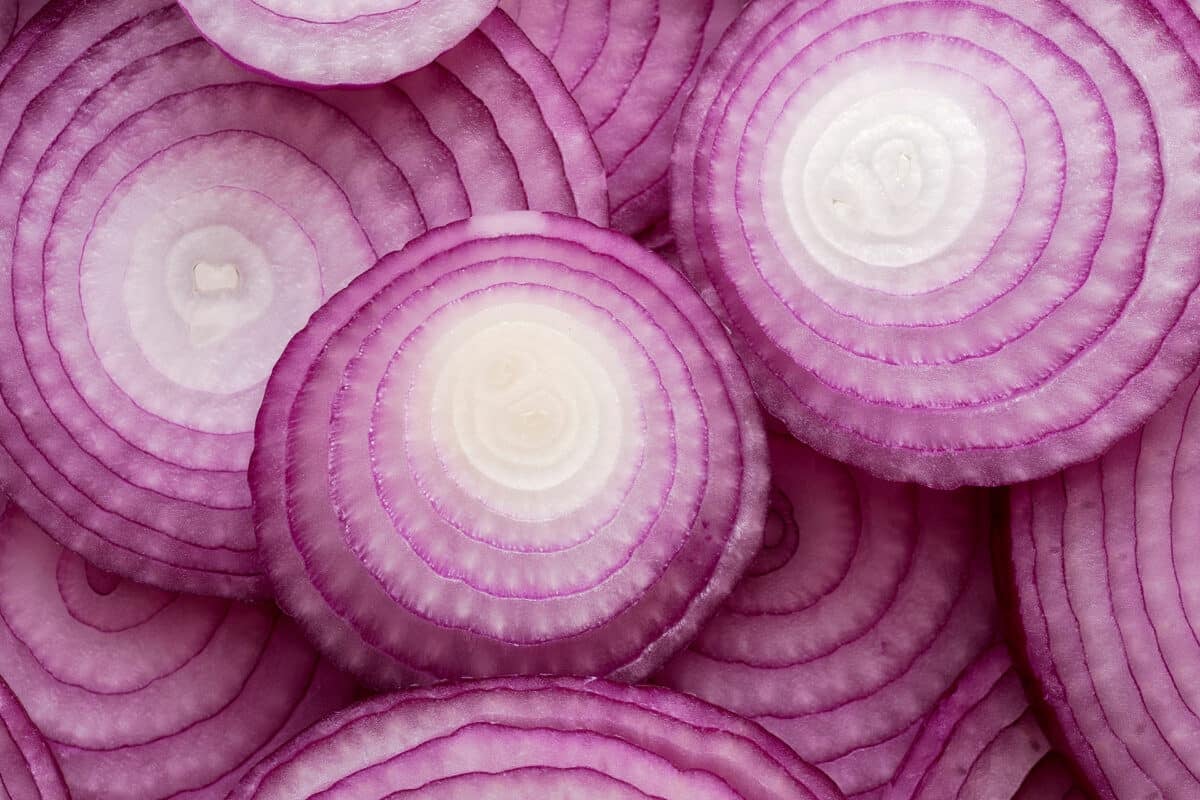
How to Learn More About Folk Medicine
Want to take your herbalism skills to the next level? Check out my Folk Medicine series on HerbMentor.
In this six-part series I dive into the core principles and practices of folk medicine, and I include lots of delicious recipes along the way — like lavender sugar, horehound molasses, fig-infused wine, and more.


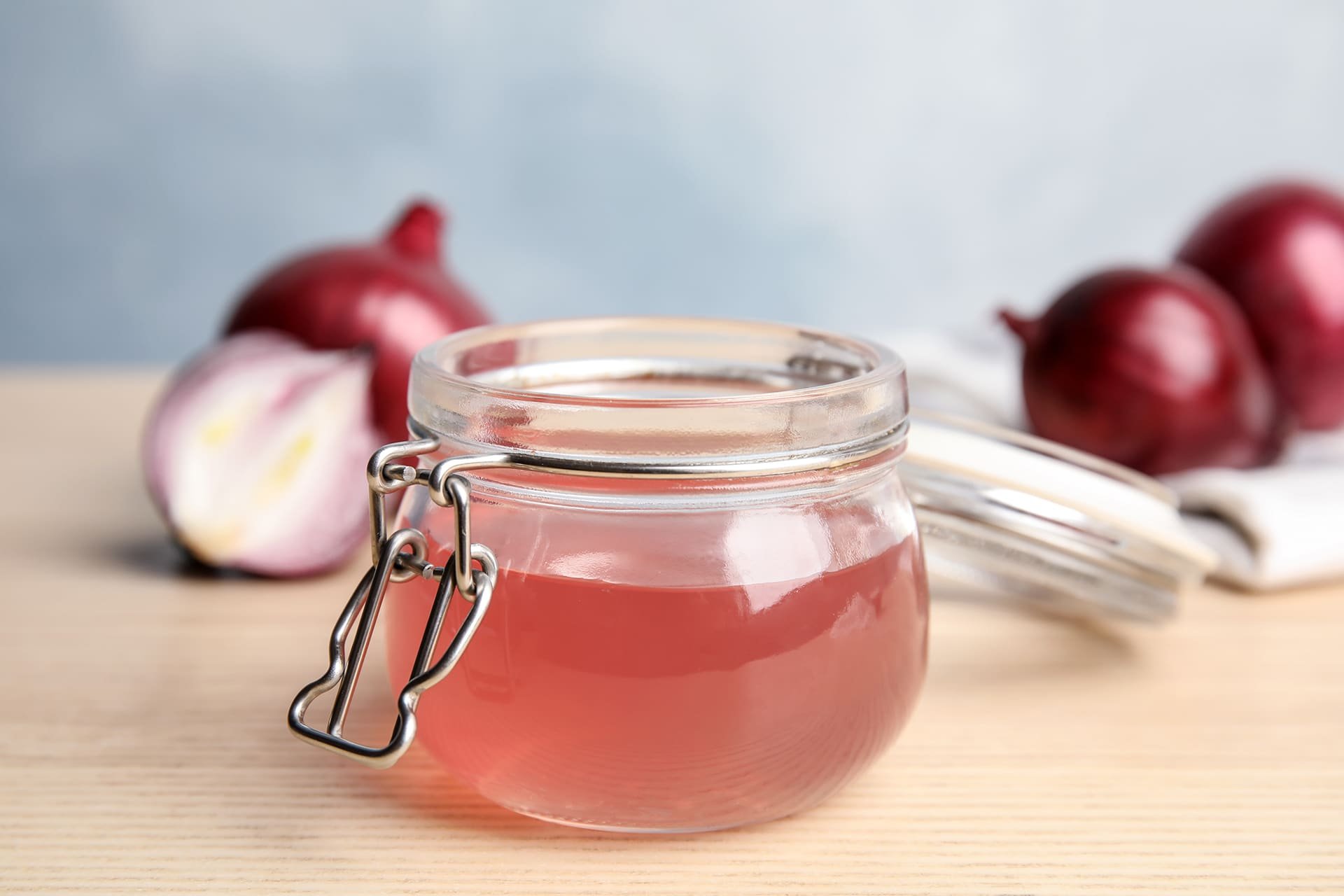

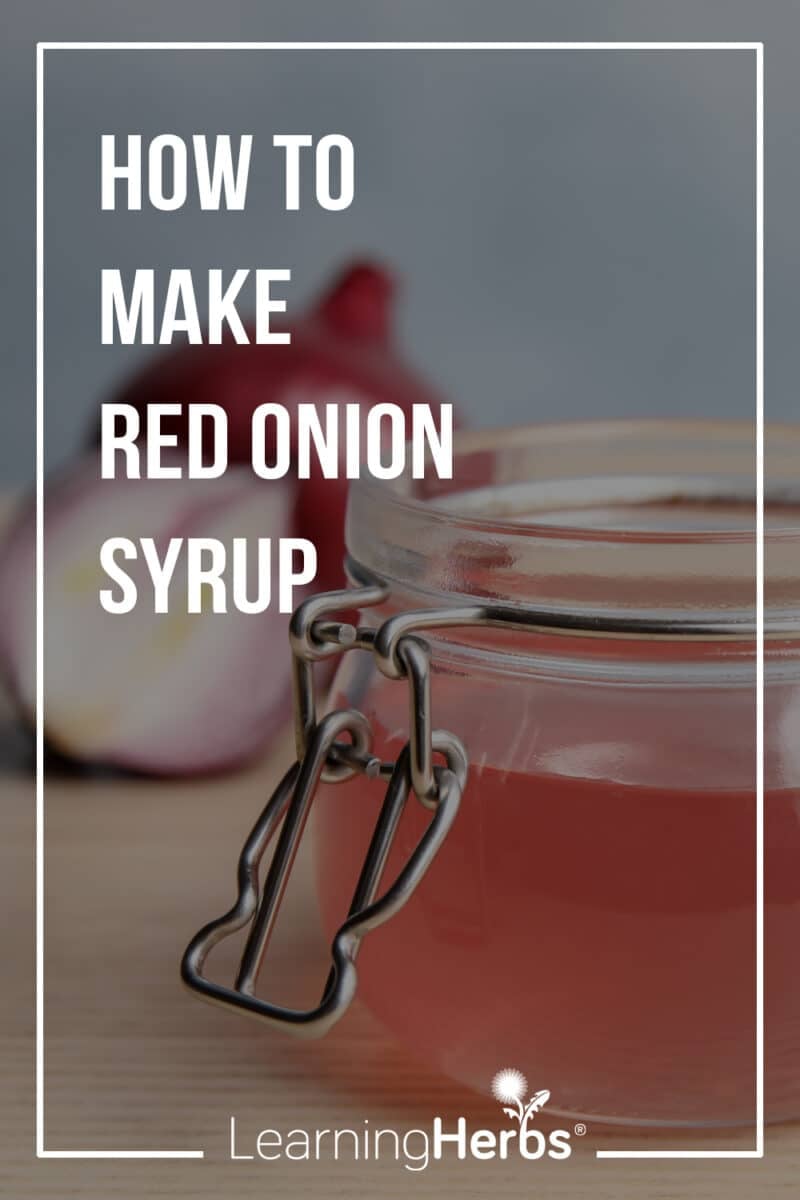


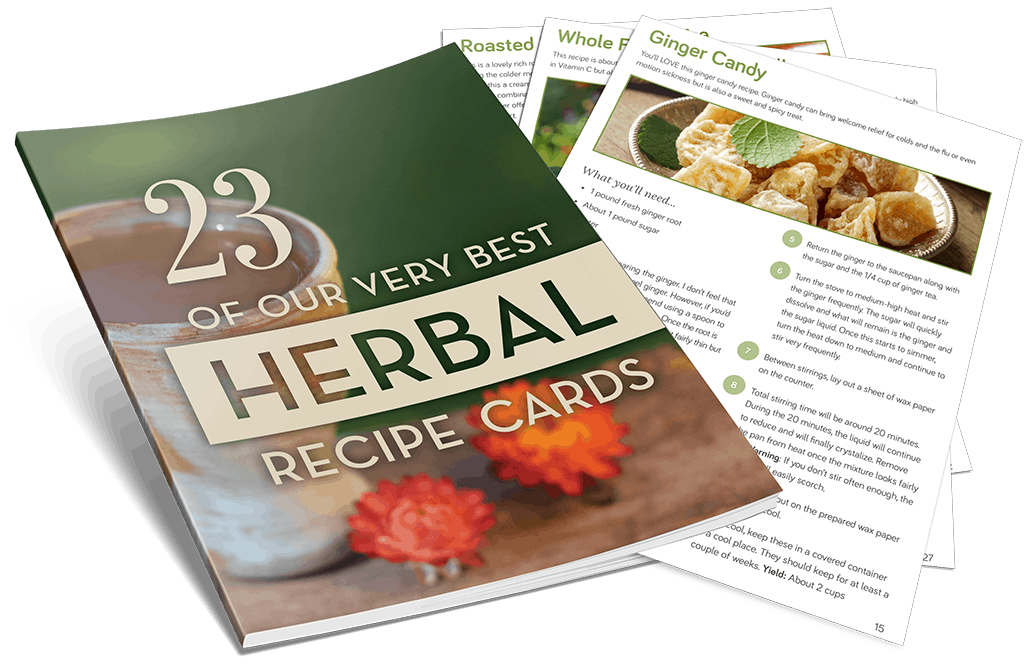


What a joy to read about this ‘simple’ healing syrup. Thank you Ms. Washington for continuing to educate on the benefits of red onion syrup. I’ve studied herbal medicine for a number of years, and this is the first I’ve read of the benefits of yet another simple and plentiful gift from nature. I cannot wait to add this to my ‘arsenal’ for keeping healthy and happy.